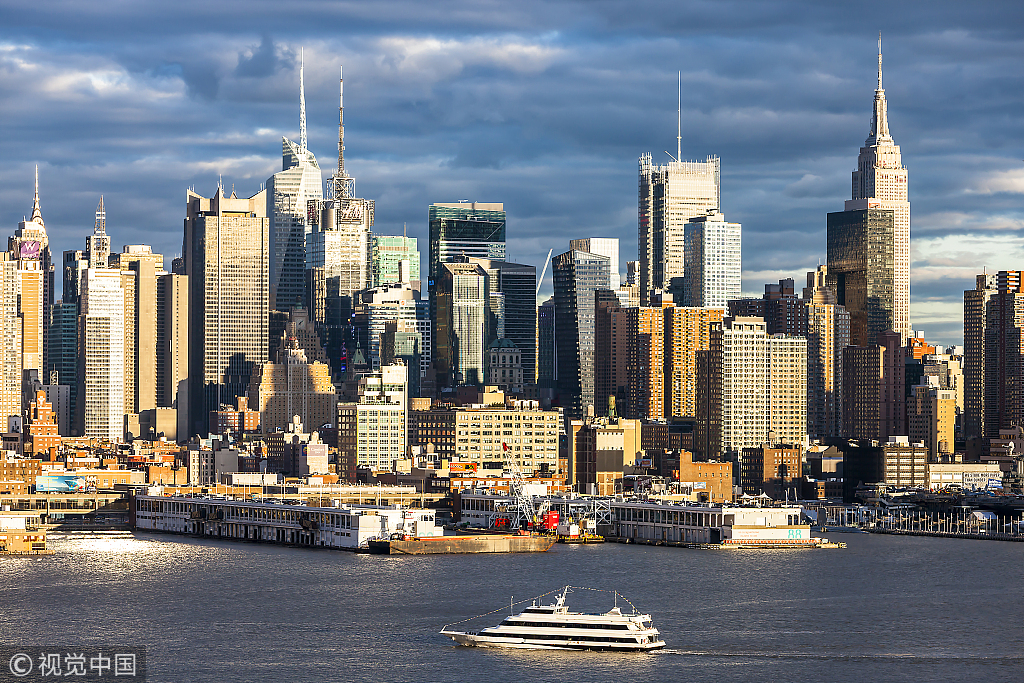A look at key items in New York’s $175.5 billion budget plan

Midtown Manhattan in New York. FILE PHOTO from VCG via China Daily/Asia News Network
ALBANY, N.Y. — Here’s a look at some of the key items included in the $175.5 billion state budget agreement announced Sunday by Democratic Gov. Andrew Cuomo and the Democrat-controlled New York Legislature:
We got it done! Here’s what’s in this year’s budget: pic.twitter.com/tDIXjK49Fq
— Archive: Governor Andrew Cuomo (@NYGovCuomo) April 1, 2019
Manhattan tolls
Vehicles traveling south of 61st Street will be charged a toll beginning in 2021 through electronic devices placed around the borough’s central business district. New York City’s Metropolitan Transportation Authority will create a review board tasked with determining toll amounts depending on the time of day, along with exemptions. Funds to be dedicated solely for upgrading the city’s transit system, along with revenues from a new transfer tax on Manhattan homes that sell for more than $25 million and a tax on internet retail sales.
MTA reforms
Article continues after this advertisementInclude requiring the Metropolitan Transportation Authority to develop a reorganization plan by June 1. Also, requires independent audit and efficiency review and public reporting on MTA performance metrics.
Article continues after this advertisementPlastic bag ban
Prohibits most single-use plastic bags provided by supermarkets and other retailers starting March 1, 2020. Gives counties and cities the option to charge 5 cents for paper bags.
Education spending
Boosts public education funding by $1 billion to $27.9 billion, with more than $700 million of that going to the state’s poorer school districts. All districts will be required to report how their funding is being allocated to each school within the district.
Health care
Increases state spending on Medicaid and other health care programs by $700 million to $19.6 billion, and codifies the federal Affordable Care Act and the state’s Health Exchange into state law.
Property tax cap
Makes the 2 percent cap on local property taxes permanent. Current temporary law was scheduled to expire next June. Since its implementation in 2012, the tax has saved taxpayers $25 billion, according to Cuomo.
Criminal justice reforms
Eliminates cash bail for misdemeanors and non-violent arrests; requires officers to issue appearance tickets rather than take someone into custody for low-level crimes; requires prosecutors and defense lawyers to share all pre-trail information, and ensures a defendant’s right to a speedy trial.
Public campaign financing
Establishes a state commission to implement a public campaign financing system for Senate and Assembly races and for statewide offices, with up to $100 million annually in public funds for campaigns. Commission to submit its findings in a report due Dec. 1.
Water infrastructure
Provides another $500 million in clean water infrastructure, in addition to the state’s $2.5 billion investment.
Limousine regulation
Increases penalties for operating a limo without the proper state authorization or for violating transportation safety regulations; gives state police and transportation officials authority to seize limo license plates when vehicles aren’t in compliance; and allows the state to revoke registration for limos that don’t meet federal safety standards.
Voting
Employers throughout the state will have to offer their workers three hours of paid time off to cast a ballot on election day. The state will also set aside $10 million to help counties pay for the roll-out of advance voting, which was approved earlier this year.
Prisons
Up to three prisons will be closed to save $35 million as the state’s prison population declines. The facilities will be chosen based on their size and role within the corrections system, with the goal of eliminating 1,200 prison beds.
Dream act
Lawmakers endorsed legislation earlier this year to make financial aid available to students who were brought into the country illegally as children. The measure and the appropriate funds were included in the budget.